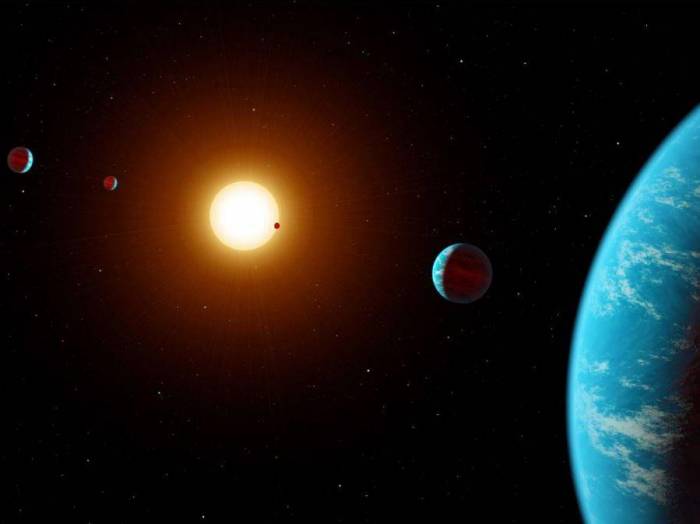Researchers discovered the K2-138 planetary system, home to at least five “sub-Neptune” planets between the size of Earth and Neptune, nearly 620 light years from Earth.
The exoplanet family was discovered after researchers launched a crowdsourcing project to help sift through three years’ worth of data from 280,000 stars.
Members of the public were given access to the project in an attempt to speed up the research after a software malfunction meant scientists would have to manually comb through the data, collected using the Kepler space telescope.
“People anywhere can log on and learn what real signals from exoplanets look like, and then look through actual data collected from the Kepler telescope to vote on whether or not to classify a given signal as a transit or just noise,” K2 collaboration member and staff scientist at the California Institute of Technology (Caltech) Jessie Christensen said of the Exoplanet Explorers citizen scientist project.
“We have each potential transit signal looked at by a minimum of 10 people, and each needs a minimum of 90 percent of ‘yes’ votes to be considered for further characterisation.”
Within 48 hours of the citizen science project launch, more than 10,000 people had participated, with over two million systems classified.
After three nights, the K2-128 system was identified, the “first multiplanet system of exoplanets discovered entirely by crowdsourcing,” according to researchers.
The findings have been published in the Astrophysical Journal and were presented at the meeting of the American Astronomical Society.
The original article was published in the Independent.
More about: #science
















































